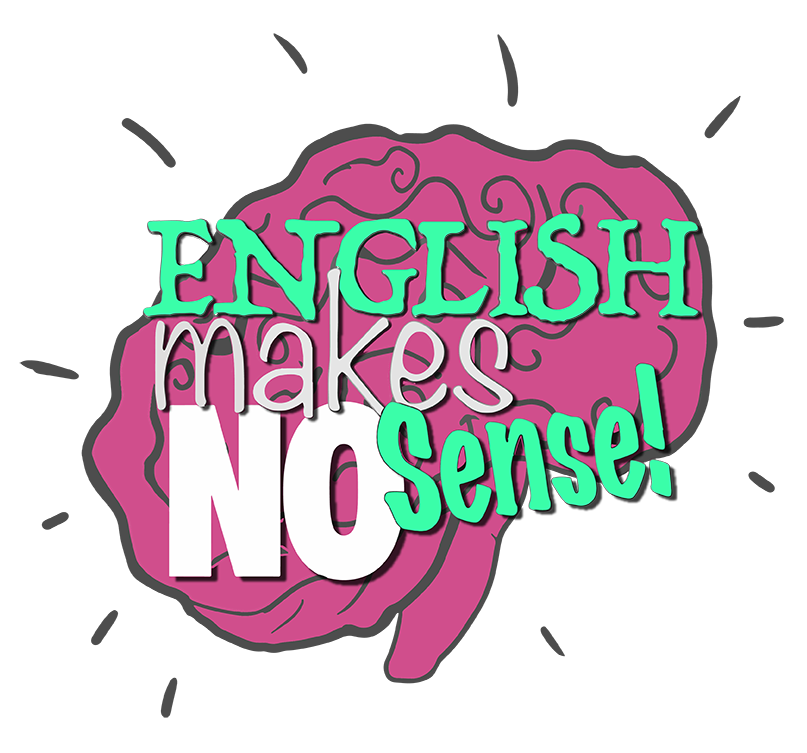Welcome to another edition of English Makes No Sense, the podcast where we have fun with the English language, one lesson at a time. So glad you can join me today! My name is SL Rockfish and today we are going to do a lesson on a very popular phrasal verb that has a lot of different meanings and uses.
This phrasal verb has 7 — count ‘em, 7 — different meanings and uses! What?! I know, crazy right! What’s the phrasal verb you may be asking? The phrasal verb is “go off”.
Yes, “go off” is our phrasal verb of the day. As previously stated, go off has seven meanings and uses. Let’s look at the first one: go off
The most explosive meaning of “go off” is when it’s used to describe something exploding or detonating, like fireworks or a bomb. Additionally, it’s often used for alarms and loud noises.
For example: “Tonight the fireworks are set to go off at 10:00pm.
Or; “The soldier found an explosive that did not go off!“
Transition:
Our second use of the phrasal verb ”go off” can mean to sound an alarm or make a loud noise.
Example Sentence: ”Bill’s car alarm goes off way too often, I think he has a wiring problem.“
Or: “My alarm goes off every morning at 5:00am.”
What time does your alarm go off?
Segment 3: Starting Events and Parties
The third meaning and use for go off is to describe the beginning of an event, often with a bang or a burst of excitement.
Example Sentence: “The party really went off last night; everyone danced until dawn.” (in the past tense)
“The fun and excitement didn’t go off until the DJ arrived!”
Segment 4: Losing Interest
Sometimes, people can “go off” something, meaning they lose interest or enthusiasm for it. Do you ever go off something? Sometimes I do.
For example, I read a lot of mystery books for weeks, and then I go off them and read something else.
Or : “She used to love playing video games, but she’s gone off them recently.”
Have you gone off something recently?
Segment 5: To Stop Functioning or Operating
“Go off” can also mean that something is not working or operating properly.
Example Sentence: “The old car usually runs fine, but today it went off unexpectedly.”
When the weather gets cold my heater often goes off, and I freeze!
I hate when things go off at the wrong time. Is there ever a good time for a machine to go off?
Segment 6: Leaving a Place (Informal)
Another use for go off is used Informally, “go off” can simply mean leaving a place, often suddenly or unexpectedly.
Example Sentence: “I need to go off now; I’ve got an appointment to catch.“
Or “Bill likes to go off on his own to relax and recharge.”
Are you one who likes to go off on your own? Where do you like to go?
Segment 7: Strong Emotional Reactions
Finally , “go off” can be used to describe someone’s strong emotional reaction to something.
Example Sentence: “When she heard the news she went off on the messenger. (She yelled at the messenger)
Or, “It is never a good idea to go off on a server at a restaurant, they control your food.”
A word of advice: It is never a good idea to go off on someone. It never solves anything!
Conclusion:
There you have it, my friends, the mighty phrasal verb “go off.” Whether it’s a spectacular fireworks show, or a sudden emotional outburst, “go off” is one versatile phrasal verb. Remember, context is key when determining its meaning. Before you go off and do something else today, remember to try and practice using this amazing phrasal verb. But please don’t go off on someone! It will ruin your day.
Thank you for joining me today! My name is SL Rockfish reminding you, to do something fun, do something amazing or you know, do nothing at all. But whatever you do, have a great day! Why does English have this one phrasal verb with two words and seven meanings and uses? I don’t know, but now you know how to use it and what it means! Peace friends!








